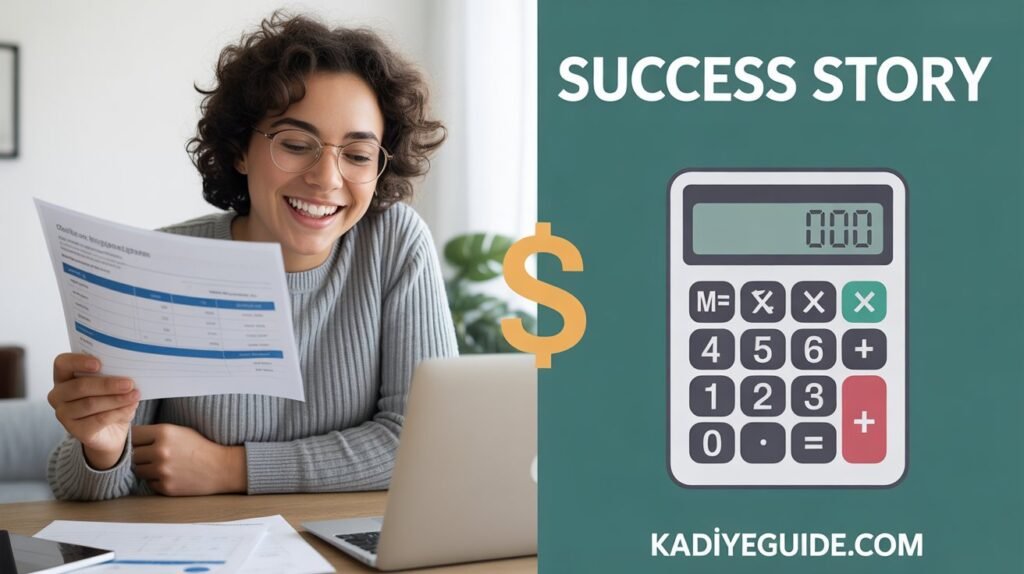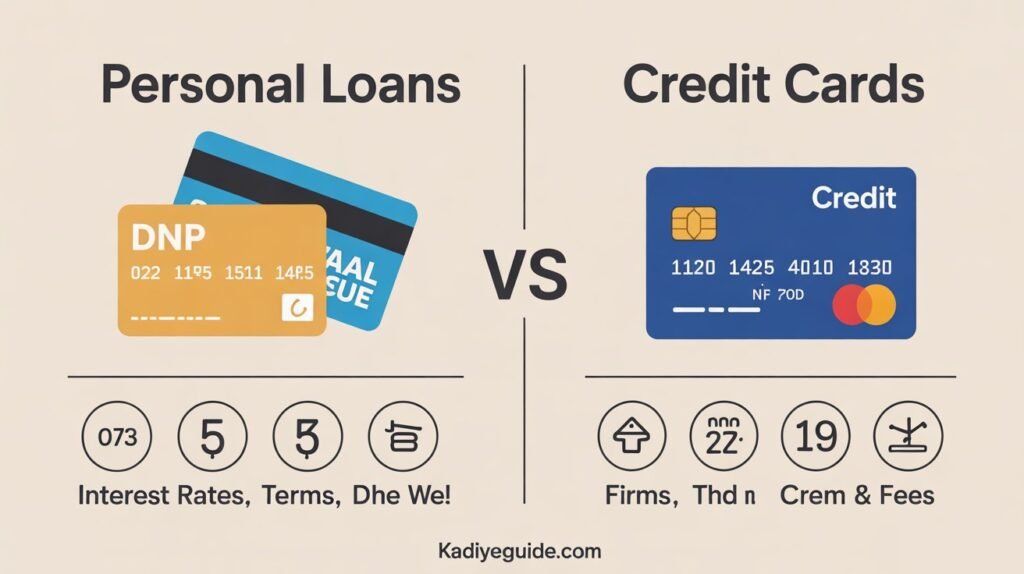Drowning in multiple debts with different due dates and interest rates? You’re not alone. Over 40% of Americans carry credit card debt, and many struggle to manage multiple payments each month. The good news? Debt consolidation can simplify your financial life and potentially save you thousands in interest.
But here’s the million dollar question Should you use a personal loan or a credit card for debt consolidation Let’s break it down.

What Is Debt Consolidation?
Debt consolidation means combining multiple debts into a single payment. Instead of juggling 5-7 different credit card bills you make one monthly payment at hopefully a lower interest rate.
Think of it like cleaning a messy desk you’re taking scattered papers and organizing them into one neat pile.
Personal Loans for Debt Consolidation
The Pros:
- Fixed interest rates Your rate won’t change, making budgeting easier
- Predictable payments Same amount every month until it’s paid off
- Lower rates Often 6-20% APR vs 18-29% for credit cards
- Set payoff date Typically 2-7 years, then you’re debt free
The Cons:
- Origination fees Some lenders charge 1-8% upfront
- Qualification requirements Need decent credit for best rates
- Temptation risk Your credit cards are now available to use again
Ready to Check Personal Loan Rates?
See personalized rates from multiple lenders in just 2 minutes no impact to your credit score.
Credit Cards for Debt Consolidation
Balance Transfer Cards: The Alternative
Balance transfer cards let you move existing debt to a new card, often with 0% introductory APR for 12-21 months.
The Pros:
- 0% intro periods Pay no interest for up to 21 months
- No origination fees Just a transfer fee usually 3-5%
- Flexibility Minimum payments instead of fixed amounts
- Rewards potential Some cards offer cash back or points
The Cons:
- Temporary rates After intro period, rates jump to 18-29%
- Transfer limits Usually can’t transfer more than your credit limit
- Credit requirements Best cards need excellent credit 740+
- Easy to re-accumulate debt The cards that caused trouble are still there

The Verdict Which Is Better?
Choose a Personal Loan If:
- You want predictable, fixed payments
- You have fair to good credit 580+
- You need 3+ years to pay off debt
- You want to remove the temptation of credit cards
Choose a Balance Transfer Card If:
- You have excellent credit 740+
- You can pay off debt within 12-21 months
- You want maximum flexibility
- You’re disciplined enough not to run up new debt
Real Example: Sarah’s $15,000 Debt
Sarah owes $15,000 across 4 credit cards at an average 22% APR.
Option 1: Personal Loan at 12% APR (5 years)
- Monthly payment: $334
- Total interest paid: $5,040
- Debt-free in: 5 years
Option 2: Balance Transfer Card 0% for 18 months, then 24% APR
- If paid in 18 months: $833/month, $0 interest
- If takes 5 years: $395/month, $8,700 total interest
Balance transfer card IF Sarah can pay $833/month. Otherwise personal loan wins.
Calculate Your Debt Consolidation Savings
Use our free calculator to see exactly how much you could save with a personal loan vs balance transfer.

Frequently Asked Questions
Q: Will debt consolidation hurt my credit score? Short-term yes you’ll see a small dip from the credit inquiry Long term it often helps by lowering your credit utilization ratio and making payments more manageable.
Q: Can I consolidate debt with bad credit? Yes but your options are limited. Personal loan rates might be 20-35% with poor credit. Focus on secured cards or credit counseling if your score is below 580.
Q: Should I close my credit cards after consolidating? Generally no Keep them open to maintain your credit history length but consider removing them from your wallet to avoid temptation.
Q: What if I can’t qualify for either option? Consider debt management plans through nonprofit credit counseling agencies, or look into secured personal loans using savings or assets as collateral.
Q: How much debt is too much to consolidate? If your debt to income ratio exceeds 40% consolidation alone won’t solve the problem. You may need to increase income or drastically cut expenses alongside consolidation.
Conclution
Debt consolidation isn’t magic it’s a tool. Personal loans offer stability and forced payoff dates while balance transfer cards provide temporary relief for disciplined borrowers.
The best choice depends on your credit score monthly budget, and honestly assessing your spending habits. Most importantly? Once you consolidate avoid accumulating new debt. Otherwise, you’ll end up with the consolidated loan PLUS new credit card balances.
Remember: The goal isn’t just to move debt around it’s to become debt free. Choose the option that sets you up for long term financial success.
Disclaimer: This article is for informational purposes only and does not constitute financial advice. Rates and terms mentioned are estimates and may vary based on creditworthiness and lender requirements. Always compare multiple offers and read the fine print before applying.
Want more productivity tips like this?
Subscribe to our newsletter for weekly guides on digital tools that make your life easier.

